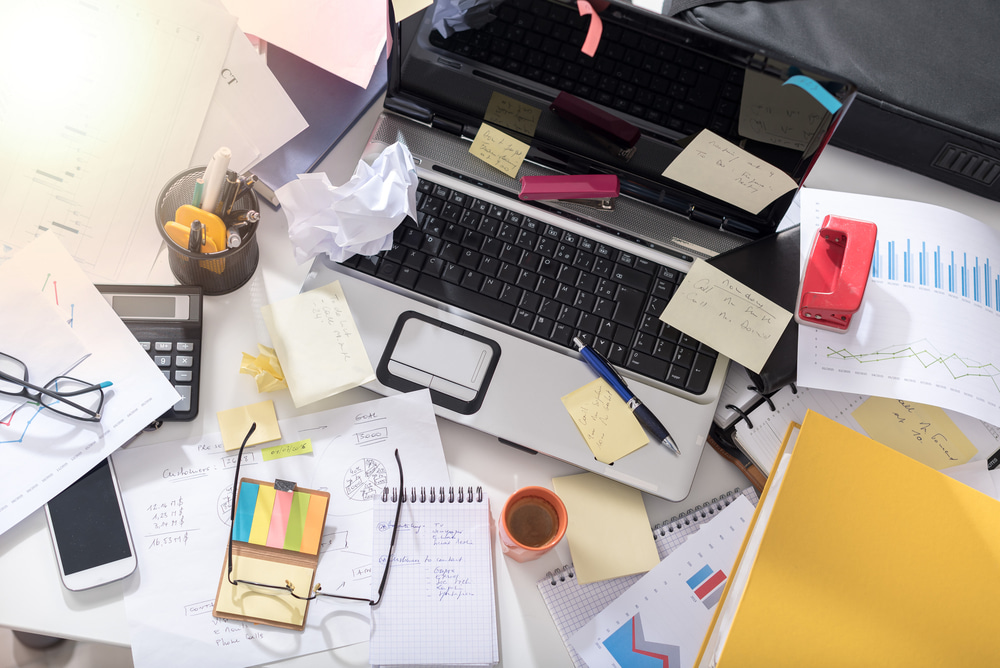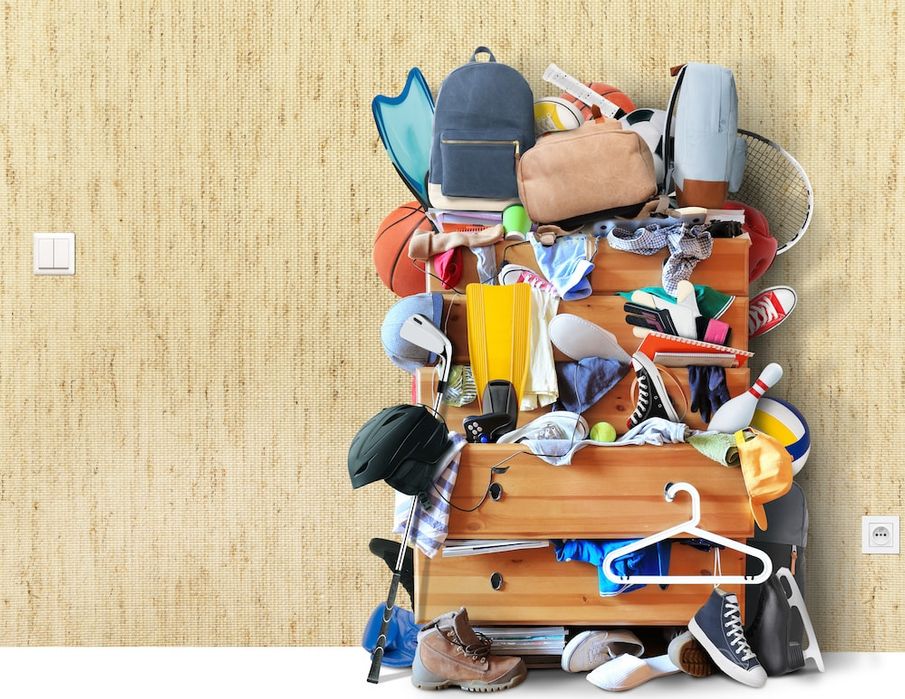Advice for learning how to control your clutter
Clutter, both physical and mental, can lead to a repetition of past choices and mistakes, as well as a reduction in your ability to keep up with the speed of life. Hoarding is a widespread trait in the UK, but what can we do about it?
Get rid of rubbish
A good rule of thumb is if you haven’t used something in the past 12 months, you probably don’t need it. This isn’t a hard or fast rule, but research has shown that a tidy physical space can have a positive impact on our mental health – so try applying it in both your work and home life.

Declutter your virtual life
The internet can be a great place to store information and to keep in touch with loved ones, but social media use has also been linked with depression and feelings of inadequacy. It might be time to clean out your Facebook newsfeed for a more positive online environment.
Get organised
You’ll feel far less stressed by being able put your hand on information you need right away.
Filter the good stuff
We continually get new information in life. If you’re making new space, you don’t want to fill it back up with old bad habits.
Finish incomplete jobs
Work through your to-do list because every unfinished project takes up a little piece of our brain power, leaving less room for creativity and inspiration.

Decluttering can be tough, so start small and build to bigger things. Sentimental items can boost your mood, so you don’t need to lose everything, but reflect on how you feel after clearing something out. Take as long as you need and go at your own pace.
Written by Nathan Fox, MBACP Adv Dip Counselling.
Read the full article on Counselling Directory.


Comments